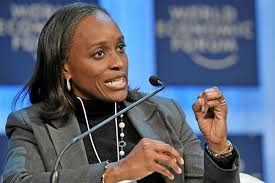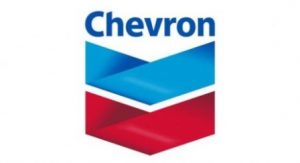… speaks at Agbami STEM symposium

Former minister of communication technology, Dr. Omobola Johnson, has advised the federal government to invest in Science, Technology, Engineering and Mathematics, STEM, to end economic challenges facing the country.
Delivering a keynote address at the Agbami STEM Symposium in Lagos, in conjunction with Chevron and Lagos Business School, Johnson said the federal government need to build an economy that is competitive, one that can develop skills, talents and also form its own capital as well as one that can attract skills, talents and capital.
According to her, the nation should build skills and talents because skills and talents based economy easily adapt with the technological revolution going on in the world. She noted that an economy that doesn’t leverage its talents cannot be competitive and attract capital.
“The world today is a world of technology and if we have people whether they are graduates or under graduates or in secondary schools that cannot work in the world of technology, then we can’t be as productive or competitive as we need to be. A STEM based economy will create jobs and wealth. And I’m sure it will not surprise you to know that Nigeria is ranked 124 out of 140 countries in the Global Competitive Index. Nigeria equally scored low in the policy formulation of science and technology. We scored 2.7 out of seven. We are lower than Kenya, Ghana and Cote d’Ivoire. I’m using African countries to compare us.
“But the interesting thing was that we scored very high in technology adoption that is people wellness to use technology every day. We scored 4.3 out of seven. What this implies today is that we have a country that is ready to embrace technology and innovation if the right things are put in place. It also shows that there is need to re-prioritise our approach to STEM education and orientation as a country.”
According to Johnson, 70 percent of graduates in sub-Saharan Africa hold a social science and humanities degree. She said the shocking data reveals that STEM is undermined in Africa. “This is a problem because science has become the engine of prosperity. If you think about electricity, transistors, computers, nano-technology, among others, this is what is driving prosperity in many countries is today.
“Even if you think of new opportunities in the field of mining, ICTs, engineering and health, these opportunities are driving demands of skills that can only deliver by STEM. The demand for skilled workers in STEM is very close to global competitiveness. So you cannot be a competitive economy if you don’t priorities STEM. So while I agree that STEM should not be a zero thing by emphasising on it in detriment of other disciplines, the balance of social science and humanities in the context of science and technology in necessary,” Johnson said.

In his welcome address, Jeffery Ewing, director, Deepwater and Production Sharing Contracts, Star Deep Water Petroleum Limited, a Chevron Company, said Chevron is happy to associate with Agbami in identifying issues in Nigeria’s STEM education reforms and providing principal strategies to ensure that STEM education is elevated to a national priority.
Ewing, who was represented by Lanre Kalejaiye, general manager, Deepwater and Production Sharing Contracts, Chevron Nigeria Limited, said for the country to succeed in this new information-based and technology-driven global society, Nigerians youths need to develop their capabilities in STEM. He said that STEM education is directly linked to global competitiveness and future economic prosperity.
“As Agbami Co-venturers, we believe that the most rewarding investment is the investment in people, because the greatest assets of a nation are its people. This is the underlying philosophy behind our social investment in the areas of health, education and economic empowerment. We believe in the principle of adding value and enriching lives in any society we operate in,” he said.
Sola Adebawo, manager, communications, Chevron Nigeria, who spoke on behalf of the Agbami Co-venturers, said the Agbami field is the Africa’s largest deepwater field with the capacity to produce 250,000 barrels of crude oil per day. He said the field is managed by a number of co-venturers, who are together in the venture, FAMFA Oil Nigeria Limited, Petrobras, StatOIl, Nigeria National Petroleum Corporation, NNPC and Star Deep Petroleum Company, which is a Chevron Company and the operator of the field.
“The working together has gone on well over the past years, of course you know that Agbami field started production in 2008 and it has the largest floating production storage and offloading facilities called the FPSO. It’s a floating ship about the size of eight football fields that has tremendous facilities with over a hundred people living and working on it. The relationship has gone on so well and all of these co-venturers have come together to invest in tremendous social investment. We have investments all across several states in Nigeria.
“The philosophy of managing social investment in deep offshore, which is where Agbami is, is that the entire country of Nigeria is host to deep offshore operation. This explains why you see facilities in Sokoto, Zamfara among others where there is no oil and where the companies are not producing. So far we have 25 chest clinics, 30 science laboratories in secondary schools around the country, 16 hybrid libraries in different schools in Nigeria, among others.”
